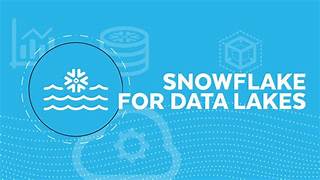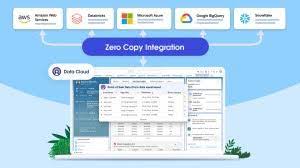Can Snowflake Be Utilized for Data Lakes
Can Snowflake Be Utilized for Data Lakes? Snowflake’s cloud-native architecture offers significant advantages for enhancing data lakes. By integrating various architectural patterns, Snowflake simplifies the creation and management of data lakes, enabling organizations to fully capitalize on their data assets. Here’s why Snowflake is an ideal solution for data lakes: Typical Steps in Building a Data Lake: Does Snowflake Utilize AWS or Azure? In Snowflake, an “external stage” refers to a location outside its own storage where data files can be kept. Both AWS and Azure can be utilized as external stages in Snowflake, offering flexibility in data storage options. Snowflake for Data Lakes: Snowflake on Azure for Data Lakes: For Microsoft Azure users, Snowflake delivers performance, security, and seamless management. Integration with Azure Data Factory (ADF) enhances data ingestion and querying capabilities within Snowflake. Why Choose Snowflake for Data Lakes? Success Stories: Siemens: Transitioning from a large on-premises SAP HANA data lake to Snowflake allowed Siemens to overcome scaling issues and integrate AI solutions more effectively. Christian Meyer, Head of Cloud Operations and Chief Technology Architect at Siemens AG, noted the challenge of scaling and integrating diverse data types and the benefit of separating storage and compute to control costs. Bumble Inc.: Using Snowflake as a unified platform for data warehousing, business intelligence, and data lakes, Bumble democratized data access, enhanced collaboration, and fostered innovation. Head of Data Vladimir Kazanov highlighted that Snowflake addressed the limitations of their legacy data warehouse, improving reporting consistency and efficiency. Snowflake’s capabilities make it a powerful tool for managing data lakes, offering flexibility, efficiency, and scalability for organizations across various industries. Like Related Posts Salesforce OEM AppExchange Expanding its reach beyond CRM, Salesforce.com has launched a new service called AppExchange OEM Edition, aimed at non-CRM service providers. Read more The Salesforce Story In Marc Benioff’s own words How did salesforce.com grow from a start up in a rented apartment into the world’s Read more Salesforce Jigsaw Salesforce.com, a prominent figure in cloud computing, has finalized a deal to acquire Jigsaw, a wiki-style business contact database, for Read more Service Cloud with AI-Driven Intelligence Salesforce Enhances Service Cloud with AI-Driven Intelligence Engine Data science and analytics are rapidly becoming standard features in enterprise applications, Read more








